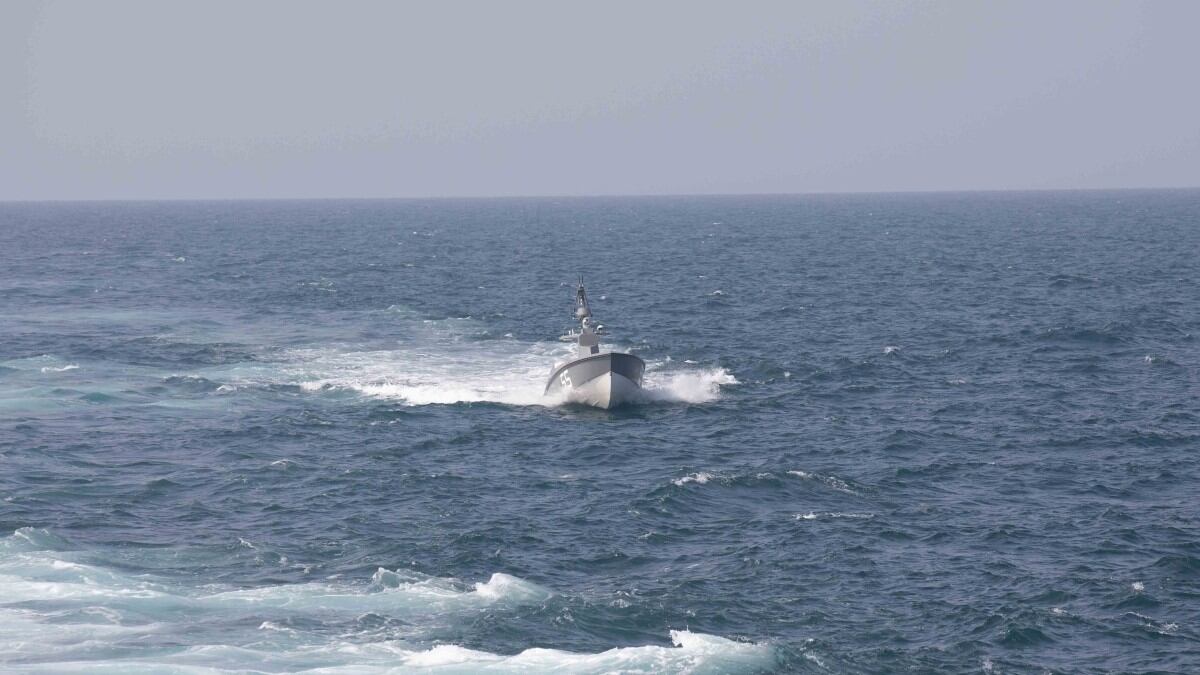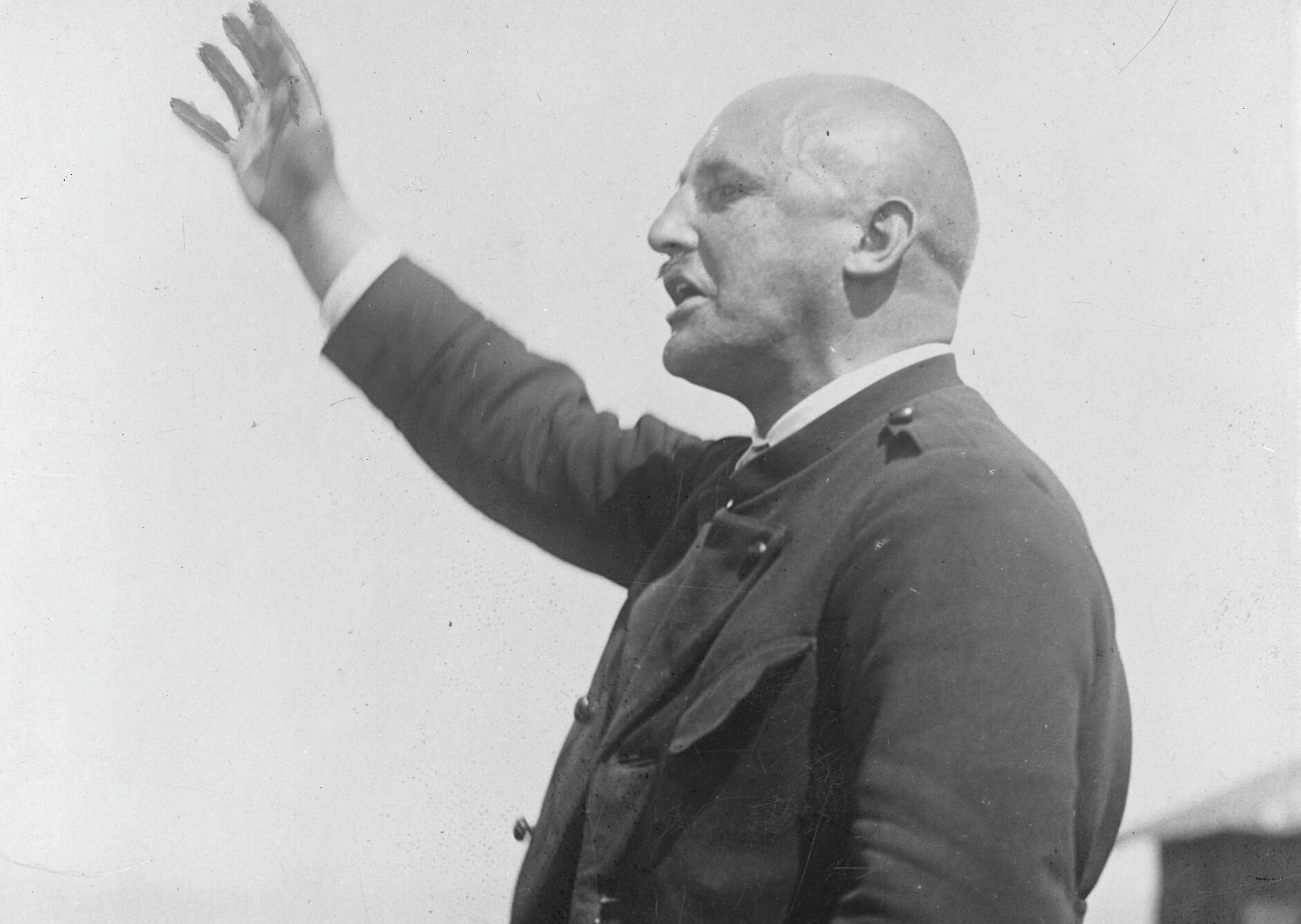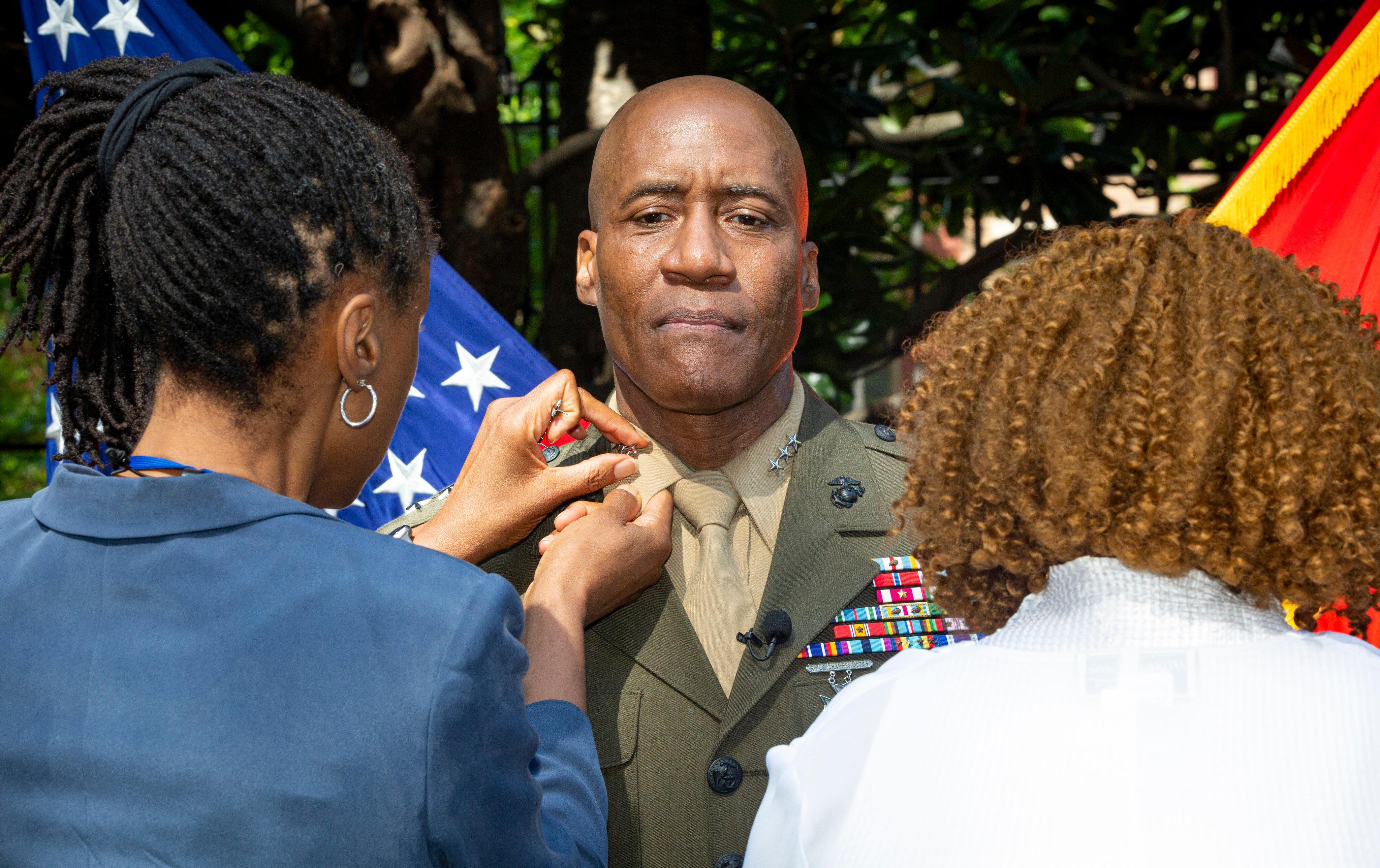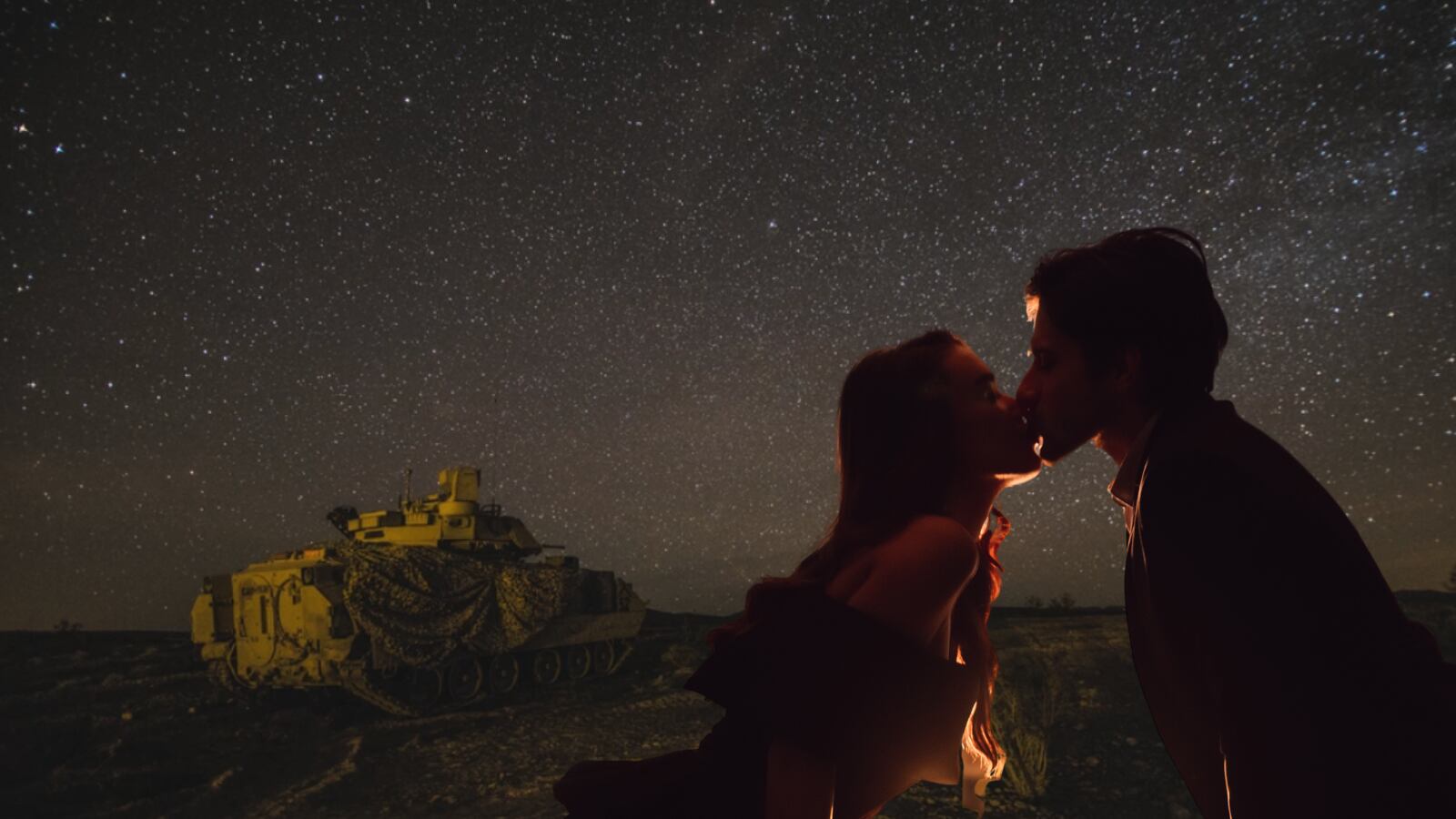Many readers responded, pro and con, to the opinion piece “Time to move past ‘Fortress America’ with US military bases” by Mackenzie Eaglen, a senior fellow at the American Enterprise Institute. Here’s a selection of your comments.
Editors note: This compilation was updated with additional comment on Aug. 9.
♦
I don’t expect Schriever space force base or Cheyenne Mountain to be open to me but I live across the street from Fort Carson and it represents 10 miles of my drive before I even get near town. It is the nearest hospital. It is the nearest of many things and being denied access without insane protocols is a huge burden on people who live in the area. We have wildfire assistance coming out of there — all sorts of things and the ridiculous amount of security has been nothing but an aggravation since it started some years ago.
Even at the height of the Iraq war we used to be able to just go on base with our ID and now it’s a logistical nightmare and there is no good reason for it. You even used to be able to get jobs on base and now that is almost impossible. The whole thing is nuts and there is no good reason for it. It is not space command; it’s just 40,000 miserable soldiers and their unhappy spouses in what is one of the worst rated military bases in the country and the complete lack of access is a huge mystery to all of us.
Like, my dog would love to be able to get a walk in the empty lands across the street — there is literally nowhere else to walk her without driving 15 miles into town to a dog park — and yet if you so much just put a toe over the line, you get assaulted by three or four different people within a moment. And there’s nothing there — it’s completely empty land — so what is the point? It is very antagonizing to all of us.
And it certainly causes a lot of resentment because there’s a lot of young soldiers racing at 90 miles an up an hour up and down our roads creating hazards doing all sorts of terrible things causing bar fights — all our impressions of the occupants of these bases are negative.
And I love the military. Both my spouses, now dead, were combat veterans. My current boyfriend is a combat veteran. I have nothing but respect and admiration. One of my boys is a combat veteran.
It’s crazy the way Fort Carson antagonizes the entire neighborhood when I just want to get along. And there are all sorts of military museums I wanna visit and I can’t get near any of them because they’re all locked down on bases that won’t let me on. That’s disgusting. My late Vietnam vet Husband wanted to visit the museum on Schriever and we were told we need to get a background check and it would take a week to get on base. Is that the stupidest thing you’ve ever heard? I think it is.
Lora Premo, military widow, Colorado Springs, Colorado
♦
In response to Mackenzie Eaglen’s article “Time to move past ‘Fortress America’ with US military bases.”
Managing just unfettered access to US military bases would be a logistical and security nightmare. Not to mention our soldiers work there, do regular civilians (outside of publicly centered businesses) just let anyone enter their business, no.
Furthermore, some services should be restricted to only military, their dependents, and retired or disabled military, services such as The Exchange and Commissary should remain exclusive to those that serve or have served. Full open access by civilians this would take away a benefit to our service members.
However, base access is already “open” and the argument “the problem is today, the public seldom sees or interacts with the armed forces on a regular basis – interactions that can help foster enduring relationships that ultimately ensure support but also inherently help with recruitment is not supported. Especially when you add compo 2 and 3 (Guard and Army Reserve) service members.
There are US military bases in 41 states, additionally, the National Guard and Reserves have armories throughout the United States. Even in areas like DFW, a city where you wouldn’t think of a military presence there isn’t a day that goes by where you’re not reminded of our Service Members. Fort Worth is the location of Naval Air Station Joint Reserve Base Forth Worth (JRB), it also happens to be the last place I lived. There are nearly daily aircraft sorties over the Fort Worth metroplex, a visible reminder of military amongst civilians. Additionally, JRB holds numerous open to the public community events, fall festivals, Trunk or Treat, Easter Egg hunts, 4TH of July events, etc.
Ms. Eaglen argues bases should be open so civilians can access the military museums. However, these are open to civilians after taking the proper access protocol. Fort Moore has the excellent National Infantry Museum and Soldier Center which is open to the public, additionally here are some other museums which open to the public:
U.S. Army Airborne and Special Operations Museum
US Army Armor and Cavalry Collection
This was just a cursory search, according to the DoD, “There are hundreds of military and war museums in the U.S. and abroad, offering opportunities to learn about our history and celebrate the men and women who served this nation.”
Additionally, throughout my over 20-year military career, military units have participated in community outreach events, parades, festivals, etc. I have seen soldiers and vehicles at Texas Motor Speedway, and various other community events during the past year alone. In June I was assigned to a role in Germany. Our base here had the U.S. Army Garrison Wiesbaden German American Friendship Festival 2023 from 29 June – 4 July, which was open to the public.
Lastly, having grown up as an Air Force dependent, our Air Force bases have Air Shows which are open to the public, including Nellis Air Force Base and the Thunderbirds, Tinker Air Force Base, and many other air shows held throughout the U.S. The events are too numerous to list. All a US citizen has to do is look up events in their local area, or in the area they are going to be visiting. The base Public Affairs office does a good job, especially through social media, with communicating these events to the American public.
I would argue base access really hasn’t gotten harder during my career. A quick search led me to pretty simple civilian base access protocols for over a dozen bases, most with a 15-30 minute process spelled out on their website. Base access protocols are essential for the security of our service members. The world in fact hasn’t gotten safer post 9/11 and to let down our guard and allow unfettered civilian access to bases wouldn’t be wise and I highly doubt would solve the recruitment short fall.
V/R,
Steve Philpot, MAJ, AR, USA
USAREUR-AF Liaison, Clay Kaserne, Germany
♦
Wow! What a thought provoking article. As a retired US Marine, I can see both pro’s and con’s for increased access to military bases by civilians.
It will take some thought before I can come to a rational, task oriented answer to the issue. This is complex in both terms of national security, and perceptions by our military and civilian populations. At my age and with many decades of experience I sometimes appreciate civilian opinions of our military and sometimes resent them.
One example might be: While on recruiting duty in Olean, New York, I was tasked to pick up and return four teachers from schools in my three-county recruiting area to their homes, before and after a trip to Marine Air Station at Cherry Point, N.C, and MCB Camp Lejeune, N.C. Trying my best to represent the Marine Corps in the best light, I made sure I was polite and respectful. The route took place in the dead of winter in rural areas on two lane hilly to mountain roads in a 1974 Plymouth Valiant on snowy, icy roads. Nerve racking to say the least. I let the teachers converse freely among themselves without interrupting, especially on the return trip requiring several hours to get them all home safely.
The pre-visit pick up trip was easier while the post-visit return trip was worse both in terms of weather and the attitude of one or two of the teachers. They had gotten a tour of the Cherry Point Marine Air Station, followed by a bus trip to Camp Lejeune, about 45 minutes away.
One of the teachers asked me why the teachers couldn’t have taken a helicopter flight from Cherry Point to Camp Lejeune. I tried to sidestep the issue without comment but he wouldn’t let it go.
Finally, irritated at his insistence that the teachers had been treated badly by forcing them to ride on a military bus from one base to another when they could have made the trip in minutes, I explained in detail the cost per hour to maintain and operate the CH-46 and CH-53 helicopters he was referring to. I explained the man hours of maintenance required for each hour of flight time, the potential dangers which the teachers were not trained and equipped to handle if the aircraft had an emergency and the liability of the Marine Corps should something happen.
I tried to do it gently at first but he wouldn’t let up, become condescending and eventually, I had to become more forceful to end it.
I’ve had good and bad interactions with civilians over the years. The good usually came from those with military service or some insight into what our military mission is while the bad ones seemed to come from those who in my estimation, didn’t have a clue.
I’ve never forgotten this experience as it illustrates both the good and the bad. It seems to me that the publics understanding of what our military is and does has changed for the worse. Many seem to operate from a position of envy and jealousy, demanding they be the recipient of things they see as special privileges reserved for our military but restricted from them. Others thankfully have a more open-minded approach allowing for the complexity and difficulty of detailed understanding without a minimum level of experience.
Retired US Marine Major H.G. Duncan once wrote in his book titled: Fiction and Fact From Dunk’s Almanac (Old-Fashioned Observations For The Modern Military Leader): “Anyone can be a civilian. You don’t even have to take a physical.” I admit that lurks in the back of my mind and may color my opinions in some cases.
I understand the benefit of good relationships with our civilian communities that can come from closer and more frequent contact. I also see these close interactions fraught with danger if not conducted with care. And that’s before the obvious national security concerns of our increasingly high-tech daily military experience.
Dale Swanson
United States Marine Corps (Retired), North Las Vegas, NV
♦
I’m afraid the writer of “Time to move past ‘Fortress America’ with US military bases” (Mackenzie Eaglen) is completely misinformed.
Golf courses on military bases are open to the public. Call Marine Memorial on Camp Pendleton. In fact, I am a member of Fallbrook Women Golfers, a group who is active with over 50 players on Camp Pendleton, and at last count the only military member is a retired Marine and I am the only military spouse.
Call Medal of Honor golf course at Quantico.
Additionally, Quantico town is a civilian town located entirely within the Quantico Marine Corps base.
There are also hundreds of military members and families living outside of military bases. We often have trouble getting military housing and must live “in town” or many families choose to live in town. Those families attend schools, work in the towns, and interact with neighbors daily.
Finally, as the author of the article stated, the states with higher numbers of bases also have higher numbers of enlistments. Doesn’t that negate her argument? If those bases are fortressed, why are enlistments high?
What the author is missing is her own understanding of military bases and life. When my husband is deployed, I like being behind that gate knowing that the guards check every person entering the base. Many of us are alone for months on end and it gives the military members one less thing to worry about back home. Please don’t make issues where there are none.
Nicole Weiler
Military spouse of a retired Marine
♦
I agree with the heart of this article. The public does need to have positive interactions with the military.
On the other hand, military bases need to be secure, with controlled access, for obvious reasons.
Maybe there’s a way to achieve both goals.
You already have youth organizations like Civil Air Patrol, which are doing great things every day.
However, in lower income areas, these organizations are struggling for funding and resources *at the local unit level.* They are dependent on donations. The donation levels local units have are dependent on the wealth and generosity of the local community.
This is something that should be looked at with a respectful and compassionate eye.
Also, reserve bases might be a better place for public interaction than full-on primary active duty bases.
The nation could use a network of smaller reserve bases that work hand-in-hand with volunteer youth organizations like CAP and others.
This would allow space and resources for the purpose of this effort at public outreach without compromising the security and operations of active duty bases.
Dan Stafford
Air Force veteran, Civil Air Patrol member
♦
Mackenzie Eaglen is wrong and this organization shouldn’t be pushing a narrative from a person who never served in the military, I’m assuming this because it’s ignorant and misinformed.
As a U.S. Navy Veteran, civilians can gain access by asking, a revolving door on a secure location is exactly that... earn your entry, a military installation isn’t a civilians playground, if she wants to play, go to the city park.
I will not be reading this publication any longer.
Bonnell Langford
Navy veteran
♦
Mackenzie Eaglen makes an excellent point in your Military Times article.
I am a military brat from Pakistan Air Force which was trained by USAF; and also now a Canadian Armed Forces candidate. I have to congratulate you, raising this critical issue.
In Pakistan, as it used to be when I was there, the military is highly visible in civilian areas; the soldiers wear their uniforms in public, engendering a sense of safety without threat of arrest; the military is (lately) on call by the judiciary and parliament for its protection. There are exhibitions of military hardware for citizens on bases (forts) - and most importantly I would say - there is a military parade and air show annually with all three services participating.
I think Remembrance Days we should have a military parade in Washington D.C. in memory of General George Washington and all that United States has accomplished in defence of freedom since!
Inviting citizens to witness military prowess of a nation instills feelings of patriotism and respect for the armed forces, veterans, and critically: would fuel the recruitment drive! Interaction also makes soldiers feel honored!!
Lastly, nothing is more successful than a repertoire of infectious music videos a la Top Gun’s “Take My Breath Away” by Berlin. You might want to license Colette Carr’s hit “F16.″
Salman Shuaib
♦
I am a life long mover, yes the dreaded mover, who has serviced military personnel for years now.
As to access to bases: this is a issue for all movers. We are literally background checked each and every time we go onto any base. It gets ridiculous with wait times, etc. Many bases we routinely go onto [we] still have to go through the searches, background checks, etc. One base took 8 hours to process the line. Someone did not get moved that day!
I am an American citizen. Every single base we go onto background checks us, NCIC, etc.
It has gotten so bad, when I accept a military relocation for my trip, I warn everyone this one thing:
The gates have one hour to process me in. One hour and one second, I will turn around and leave, thats it.
I do not get paid for wait time at the gates. Not a single dime. I pay for the labor that’s also waiting. So, the excessive and overly redundant waits, checks and searches have to stop.
Also, there have been times at bases where my labor gets on one day, next day they are denied, then the following day they are allowed on.
We need to stop this ridiculous attitude. It’s akin to the Soviet and East German bases of the 80s and is often portrayed in the movies. If someone is checked as often as I am. Then the system should show across the board a green light. It is so ridiculous, that some bases print my pass with a picture on it from five years ago! Five. A picture from an access in Montana. The pass will be issued in Alabama or somewhere else. So it shows that the systems are all interconnected.
That alone shows how lacking in security that we actually have become.
Ross Tennison
♦
I totally agree with what is brought up in this article. Before 9/11 it was normal to drive through Fort Sam Houston in San Antonio Texas. It was a journey through history for my kids. Houses where Patton, Eisenhower and other historical figures lived was fascinating and educational. We could also attend plays, sporting events and other social events on the base. That all changed on 9/11. I understand the reason for this, but also think that with proper security protocols the public could once again be welcomed back on these bases.
Dr. John Watkins
Marine Corps veteran
♦
After reading the chief of staffs comments about opening bases to the public to solve the public understanding and trust of military, I had to respond. The problem, in my opinion cannot be solved by lettting the public on base. The way to solve public respect and understanding has multiple aspects. First, and probably most destructive to public knowledge and respect, was the move to consolidate National Guard armories. Home town local Armories gave people up close connection with military. As an advisor to the National Guard, I experience first hand, the value of having local, small armories. That first encouraged enlistment and using the Armory for civic events, [it] also developed public trust and understanding of the military and I believe recruiting for active service. Every day locals saw and interacted with people in uniform.
The second issue that, in my opinion, has caused recruiting problems and perception problems is contracting of base housing. I am on a military base a few times a week and have visited a few different bases every year. What I [have] seen and heard is that base housing contractors push off post rentals and properties which results in far more personnel living off post, than on. Again, I have personally worked with active duty personnel who had many problems because thy simply didn’t fit in and because they did not a support system. [My] wife, in particular, had no one who understands [her] to lean on. This perspective of a military family in destress sends very negative messages to the public.
We need to take back management of pot housing and get officers and enlisted back on post housing.
Coupled with this is recreational services. Apparently because most military personnel are off post now, things like unit sports are very limited to non-existent, which unit cohesion clearly is affected.
John Fravel
♦
I agree with the premise that exposure would help recruiting. However, exposure offers more opportunity for spies, protests and [to] expose military families to possible threats.
A risk assessment is definitely needed. If bases can pick a Saturday per quarter or a month to allow visits, they can plan events that would attract visitors. Open certain bases stores to the public [and] limit visits to certain streets. That one day would allow the bases to increase security and give commanders time to access incidents. Fun runs, range demonstrations, etc...
Retired Sgt. William Dickson
Current DA civilian
♦
Forgive me, Mac, but your article really made my blood boil to put it mildly! It is obvious to me that you have never been in the military or you have forgotten what it was like being in the military.
First of all, a military base is off-limits to civilians for many very good reasons. Second of all, it’s the military personnel’s home and work place. Would you want hordes of strange people invading your home or work place? Or put the shoe on the other foot for a moment, how about car/bus loads of military personnel coming to watch/video your every move. Opening up our bases would give an open invitation to every Tom, Dick and Harry with an axe to grind the opportunity they have been waiting for! Have you looked around this day and time at the climate of the world or do you walk around with your eyes closed?
Here’s a really good question for you, since I know you haven’t liked the ones thus far. Have you completely forgotten 9/11? I sure as hell haven’t! Tell me how in the world are you going to inspect that many additional vehicles? Or are you proposing to just let them all enter with a smile and a wave from the guards at the gate! There are many, many things that our military needs to keep secret.
You don’t need to know the size of a base, the number of personnel aboard said base or the layout of any base. Just think of the ramifications that could cause if the above mentioned specifics was in any of this country’s enemies hands, both foreign and domestic!
Now to [the] ungodly item you mention about opening up the military bases recreational venues to civilians. These venues are the only places that our military personnel have to let go and blow off the rigors of daily life. They do not need to worry about who is watching/videoing them or recording what they might be talking about amongst themselves. Speaking from experience, most conversations me and my fellow Marines had at any given time was shop talk. I can hear you now, what a boring life. On the contrary, that is your life and you try to help each other in that manner. Every air station that I was ever on allowed personal to bring a civilian friend on board with the proper authorization and advanced notice. The military does open their doors on occasions, but it is up to their discretion, not yours, and that’s the way it should be!!!
Again these military bases are the work place and home of our people in uniform. Do not go uninvited, nor take away what they have so rightly learned, their privacy.
Marine Corps Sgt Jimmy W. Harris
1972 / 1978
♦
I agree that more contact between the military and surrounding communities is a good thing and should be pursued. I am a veteran and live in Sierra Vista, Arizona. Fort Huachuca has three wonderful museums, bowling, horseback riding and a number of eating options. They also host many youth and sporting events and Cochise County Search & Rescue conducts some training on the fort.
The first responders in the community do occasional demonstrations and displays for the base personnel to enjoy. The Leadership on the fort and the Sierra Vista city management have regular meetings and frequent contact. I believe that Fort Huachuca is an example to hold up to the rest of our military establishment.
Tom Yarbrough
♦
No apology, this opinion is BS on a number of points. U.S. military bases in the past have allowed access to facilities like golf courses. I’ve played many rounds at NAS North Island in San Diego. These are exceptions not the rule as far as base access is concerned.
I spent 10 years in the Air Force, coupled with 18 years as an AF dependent. I grew up in the military on restricted access bases. The only time bases were open to the public was for Armed Forces day for air shows & aerial demonstrations. Civilian access is limited to civilian employees and tradesmen from the area.
Does this need to be changed, absolutely not! With the threats from China & Russia, and the high tech weapons systems employed today “need to know” must be enforced and enhanced. Security becomes an issue when too many people have access, especially civilian access.
If the combined chiefs of staff took a serious look at single & family housing, that is a major problem! You might see enlistments increase. If equality of race, religion and sexual persuasion were enforced service wide, you’ll have less issues and more recruits. You also have to pay recruits what they’re worth in this high tech armed forces.
I was satisfied with what I made in uniform as a single Airman...all my needs were met. However, I went from E-5 pay in 1980 to substantially more money with McDonnell Douglas as an aircraft mechanic when I discharged. Today if you choose wisely in a military speciality you can make very good money. The services must make life in the military more attractive than in the late 60′s when I enlisted.
We do not need more civilian traffic on military installations … we need less!
Scott Cooper
♦
Heck no. With a society full of illegal residents and gang members, a military base is the [last place] you want to show civilians. It’s the Recruiting Commands’ responsibility to bring the military to the people.
Maybe more artifacts at American Legion Post and VFW can be part of the answer.
Joseph Marcheggiani
Commander, Eastern Area Florida American Legion
♦
Opening military bases to the public is a crazy idea, we are not Canada! Thinking that since the American citizens pay for the bases through taxes does not give citizens a right to board a base. I’m retired military, but I don’t have access to everything that my taxes pay for. Democrats have stripped the military of most incentives for joining. I joined in 1972 and the benefits we had then are going away. The best thing we can do for the military, instead of clapping when you see a veteran, is activate the draft, we’d no longer have generations of snowflakes.
Anon.
♦
Have an opinion?
If you have an editorial of your own you would like to submit, please email us. Want more perspectives like this sent straight to you? Subscribe to get our Commentary & Opinion newsletter once a week.









